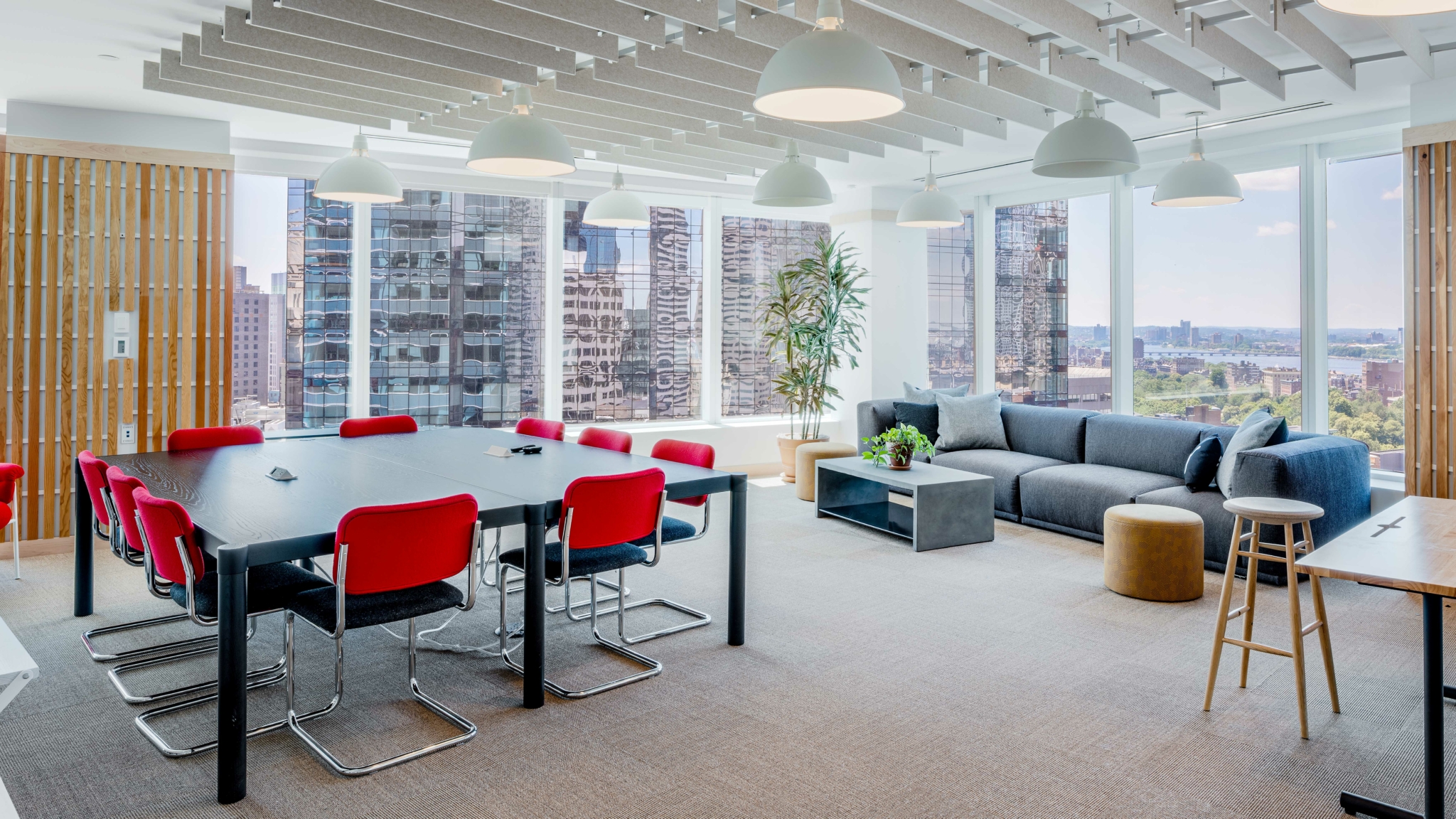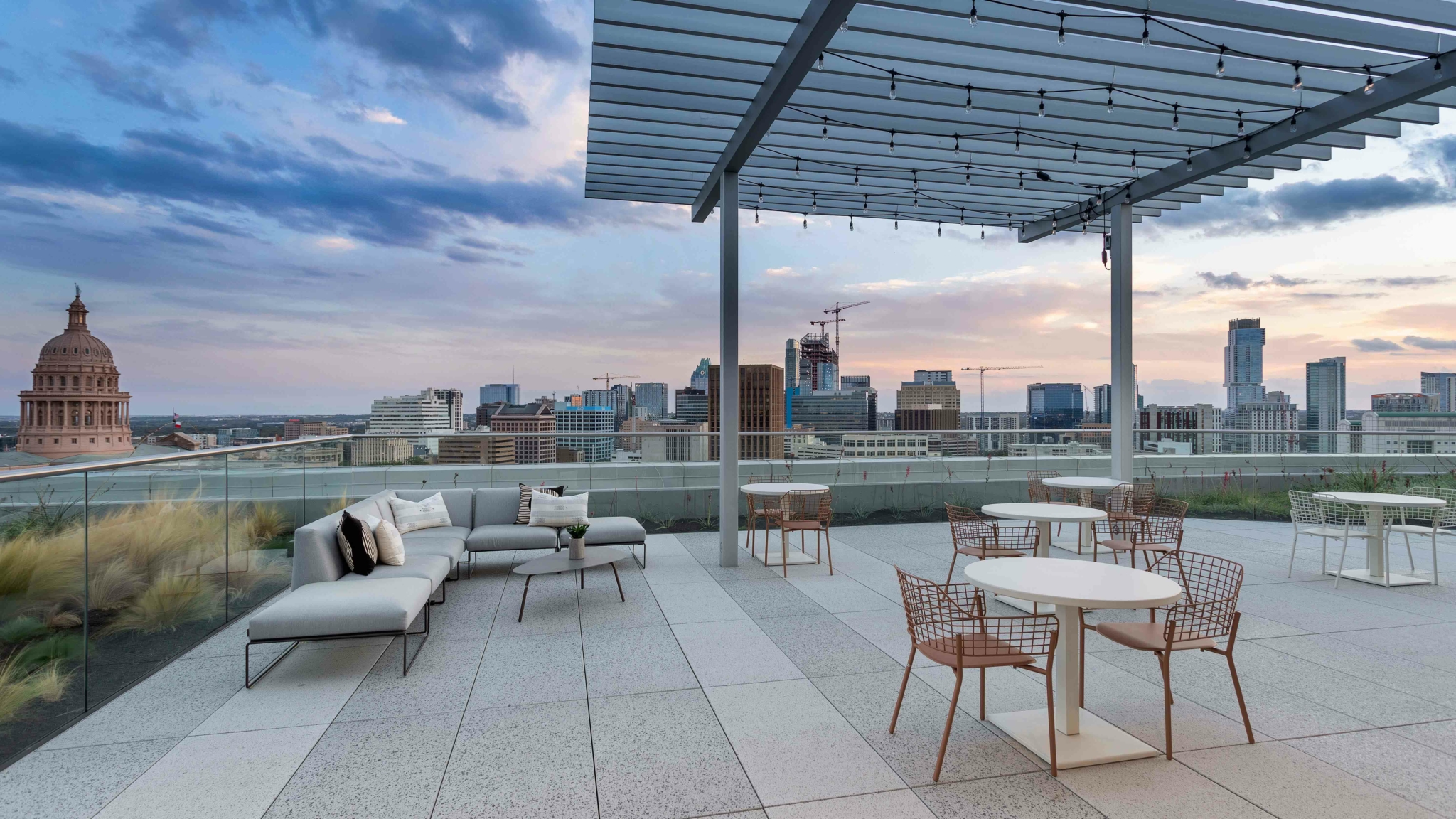Between the rise of remote work, open office plans and shared coworking spaces, hot-desking has become a staple of modern working life. More than a trend, it allows people to work when and where they want, and is a tool used by self-employed individuals and established companies to stay productive and connected, wherever their work takes them. Flexible solutions like WeWork On Demand and WeWork All Access offer easy access to hot desks.
Hot-desking has myriad benefits, from convenience and flexibility to intangibles like community and creativity. But how does it work, and is it right for your company?
What is hot-desking?
Hot-desking is an organisational workspace system in which desks are used by different people at different times, on an ad hoc basis. Typically, the aim is to maximise space efficiency and lessen property risk by reducing redundant office space. Hot desks can be implemented in private offices as well as coworking spaces. The flexibility associated with hot-desking is often linked to an increase in employee innovation, while the social aspect is cited as a way to encourage cross-disciplinary collaboration.
How does hot-desking work?
Find a desk, plug in, and get to work: hot desks provide space for professionals to work as needed, in both private and shared office spaces. That means that the particulars for hot-desking may vary depending on the environment, but here are the primary factors to consider.
Access to power sockets and phones
Hot desks typically come with their own power sockets and Wi-Fi connection. In shared coworking spaces like WeWork, there are dedicated spaces away from the desk for taking calls – phone booths or in shared lounges, for example. In private office environments, particularly in sales companies, a permanent phone is probably attached to the desk for different employees to use as needed.
Bookable meeting rooms
Most hot-desking arrangements in shared coworking spaces allow you to book meeting rooms through an app or a web log-in. Amenity-rich solutions like WeWork also afford you access to shared lounges, kitchens, brainstorming areas, conference rooms and a global network of professionals.
Printing facilities
Similar to booking conference rooms, hot-desking spaces often have a central printer that workers can use through an app or web log-in. These printers are managed by the community team in shared workspaces and internally by office managers in private environments.
Storing personal items
A frequently touted concern associated with hot-desking is the absence of a dedicated ‘base’ for users to store their bags, coats and work accessories. The way this is addressed changes between workspaces: in some coworking spaces, users are permitted to leave their belongings at a hot desk for a certain amount of time as they attend meetings or have lunch. Other shared spaces provide cubby holes or lockers for their hot-desk clientele. In private offices, it’s more common for an employee to camp out at the same desk for the whole day, regardless of meetings or lunch breaks.
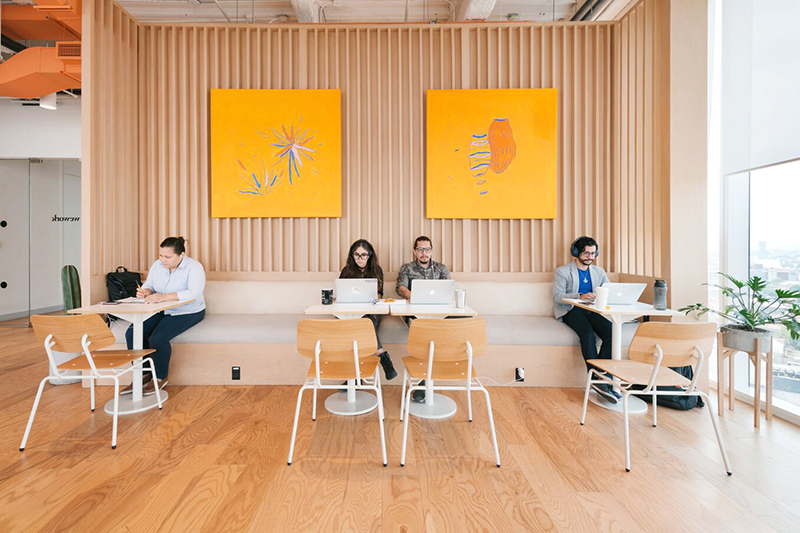
Technology and Internet
Hot-desking wouldn’t be possible if it weren’t for laptops, tablets and smartphones – and all offices with hot-desking arrangements should provide suitable Wi-Fi. Some users, however, need more than their laptop to work effectively. For this reason, some hot desks come with a monitor and a VGA, DVI or HDMI connection, allowing users to plug-in and use a second screen temporarily.
Bathrooms, kitchens and other common areas
As in most office environments, amenities like bathrooms and kitchens are included in hot-desking arrangements and are cleaned, stocked and maintained by office management. In all-inclusive solutions like WeWork, hot-desk agreements also give you access to free-flowing coffee, quiet rooms for meditation, showers, bathroom necessities like lotion and hair products, as well as perks like community meals and frequent networking events.
Private space when needed
Most professions call for some privacy during the working day, whether it’s for attending meetings, strategic planning or discussing finances. These conversations are likely too sensitive for a hot desk, especially when you’re surrounded by people from other teams or other companies, and require a more private space.
Both private offices and coworking spaces provide bookable conference rooms for holding private meetings or taking sensitive calls; however, workspace solutions like WeWork also provide sound-proofed private phone booths. Plus, intentionally designed lounges offer private nooks for taking calls or having conversations.
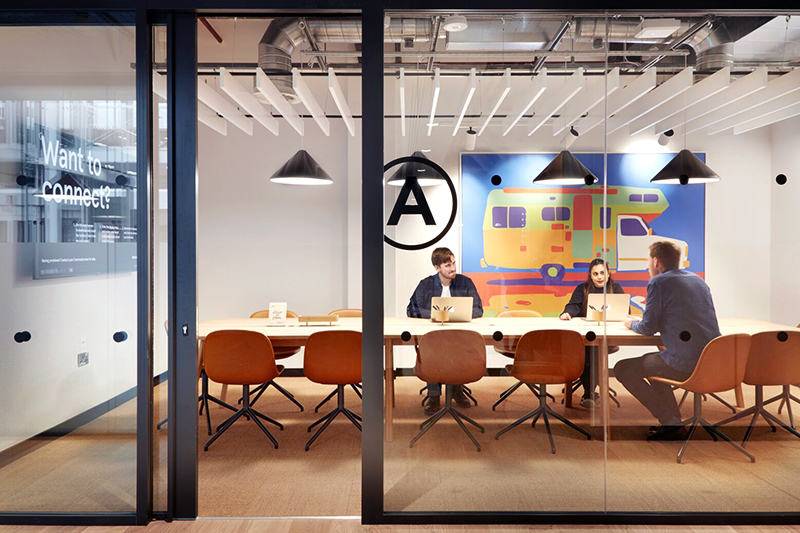
The advantages of hot-desking
The benefits of hot-desking vary depending on your work style and what you need from the arrangement. Where freelancers appreciate having a place to work and meet potential clients, business owners like the flexible lease terms and the ability to recruit or send employees to workspaces in different cities.
Hot-desking for self-employed workers
If you’re a consultant, freelancer or entrepreneur working at the same location, hot-desking is a flexible, cost-effective solution to finding office space – without the commitment or rigidity of long-term office leases. It helps combat the isolation of working from home, and surrounds you with a network of professionals who are also working remotely or freelancing for themselves.
For self-employed workers juggling multiple projects in various locations, hot-desking also allows you to find a workspace and stay connected – even between cities. This convenience fuels productivity and provides the perks of office space (a dedicated place to work; a professional setting to meet with clients) wherever your work takes you.
Hot-desking for enterprise companies
Agility is key when it comes to growing your team and scaling your business – and hot-desking gives you the flexibility to employ remote workers without major upfront investment. Monthly, individual agreements allow you to scale into key markets quickly and withdraw when necessary, while eliminating the risks associated with opening your own office.
The arrangement also allows companies to hire top talent, unrestricted by location. ‘Instead of being siloed in our Palo Alto headquarters, we now recruit the very best talent in cities all over the globe,’ says Tammi Yee, vice president of global talent at WeWork member company TripActions. Hot-desking allows you to expand your team where talent resides, without setting up your own space or handling relocation costs.
Alongside scale and growth, the cost savings that come with flexible rent agreements and the outsourcing of office staff, cleaning staff and the cost of amenities are a major draw for big businesses. According to a recent survey of more than 550 commercial property executives, one-third of the companies using flexible space reported occupancy cost savings of more than 5 per cent.
Finally, employee engagement and productivity levels are anecdotally seen to increase within coworking spaces, and hot-desking is an effective way to tap into that. ‘For a field-based employee, it is nice to have a community workspace to go to,’ says Ashley Swygert, vice president of commercial strategy at WeWork member Pabst Brewing Company.
Headquartered in Los Angeles, with offices in San Antonio and Dallas, Pabst also employees more than 300 remote workers across the country. ‘All of the WeWork spaces are super-nice and very inviting,’ Swygert says. ‘It is awesome to be able to interact with so many different people, which helps me to stay motivated and inspired.’
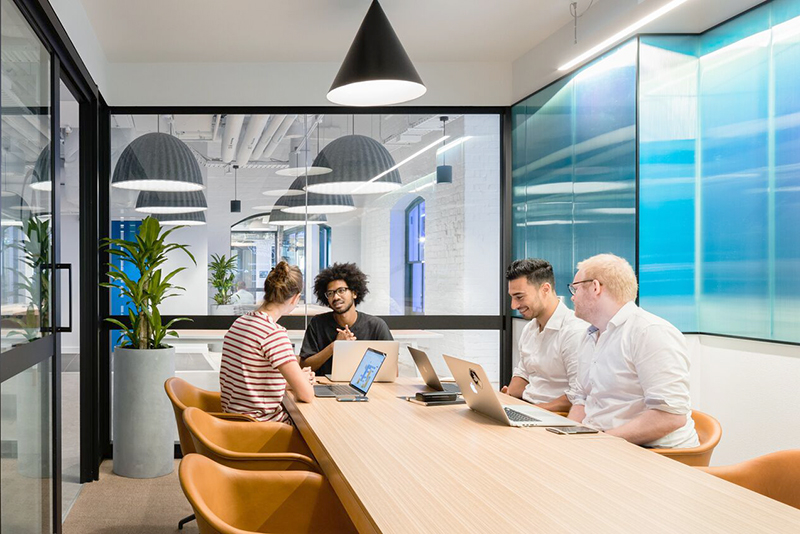
Hot-desking is linked to increased collaboration and innovation – for all
Whether it’s in a private office or a wider coworking space, hot-desking brings people together from different teams or companies, creating a diverse microcosm of professionals. This connection often leads to fresh opportunities, in which new clients, investors, partners or employees are gained through hot-desking introductions.
According to 2018 research, coworking spaces are particularly valuable in forging relationships between ‘entrepreneurs, other businesses, startups and innovators’. This is achieved through intentional, data-driven workspace design that includes shared spaces and infrastructure, and technology like apps or online coworking communities.
Many studies have linked hot-desking to an increase in innovation and entrepreneurship. This comes, in part, from the flexibility afforded to hot desk users – they can work where and when inspiration strikes. It also occurs through knowledge-share, social interactions and the decentralisation of innovation processes in hot-desking environments. Discovering new ideas and processes happens naturally when you’re surrounded by a variety of expertise. Plus, the risk of burnout and project fatigue is reduced by an ever-evolving work environment.
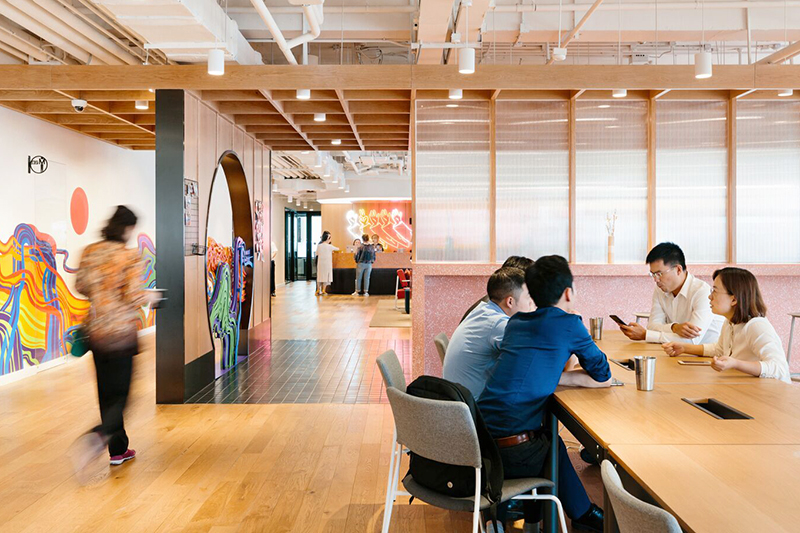
How to know if hot-desking isn’t right for you
Certainly, while the benefits of hot-desking may be numerous, the arrangement doesn’t suit all industries or all work styles. Employees dealing with highly sensitive information may prefer a more private solution, while teams that require consistent structure and ongoing collaboration throughout the working day could grow frustrated at the changing seating. Training new employees calls for different considerations, and finding colleagues may require some reconnaissance through chat clients. In these cases, consider dedicated desks or a small private office within a coworking environment. Arrangements like these afford you and your team a more controlled, personalised workspace while retaining the perks of the wider space and coworking community.
Whether you’re freelancing for yourself or running a remote team, hot-desking helps to drive productivity at different locations. It allows you to make bold business decisions – like expanding into new markets or employing the best talent remotely – unencumbered by the long-term commitment and costs of traditional office space. Finally, it exposes you to fresh opportunities for innovation while giving you access to a vibrant community of professionals.
More flexible solutions
To serve the growing number of people in the remote workforce and companies implementing hybrid workplace models, WeWork has made access to hot desks, as well as other workspaces like meeting rooms and private offices, much more accessible and flexible. The flexibility and accessibility don’t come at the cost of safety and social distancing measures as WeWork continues to prioritise the safety of our community with enhanced cleaning measures and reimagined spaces for effective workplace distancing.
If hot desking is right for you and your company, the following WeWork products may be a perfect fit.
WeWork On Demand
WeWork On Demand offers unprecedented flexibility, granting you access to hot desks and meeting rooms in more than 190 accessible locations across 17 major cities, all without being tied to a monthly commitment. Just download the app, find the closest WeWork location to you, book it and head over.
WeWork All Access
WeWork All Access unlocks access to hot desks, conference rooms and private offices in hundreds of WeWork locations globally, in 150 cities across 30 countries. Here are easy steps to activate as either a new or current member.
This article was originally published on 21 November 2019, and has been updated throughout by the editors.
Caitlin Bishop was a writer for WeWork’s Ideas by We, based in New York City. Previously, she was a journalist and editor at Mamamia.com.au in Sydney, Australia, and a contributing reporter at Gotham Gazette.
Rethinking your workspace?





